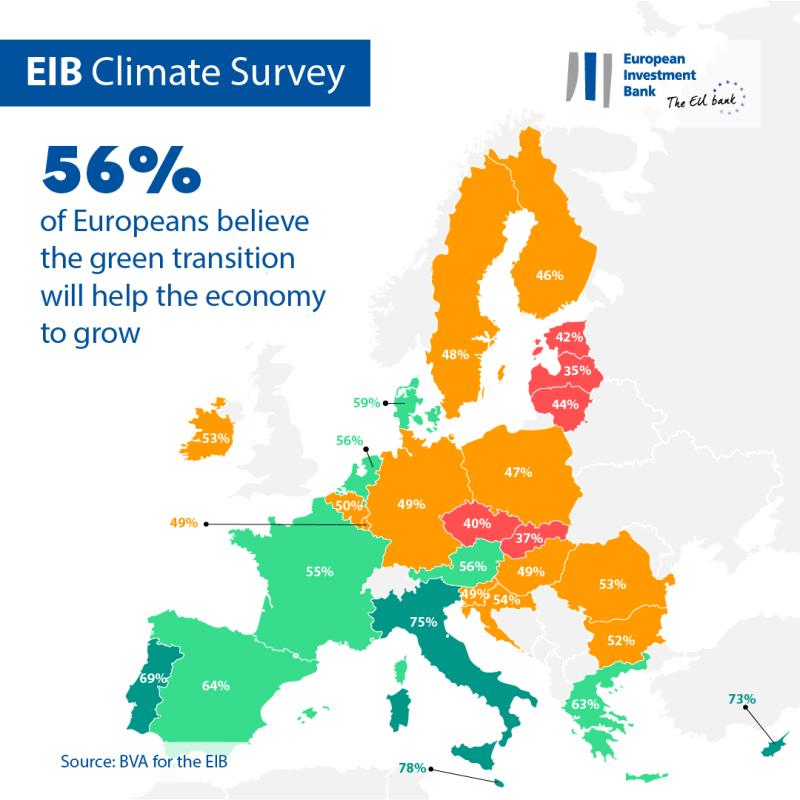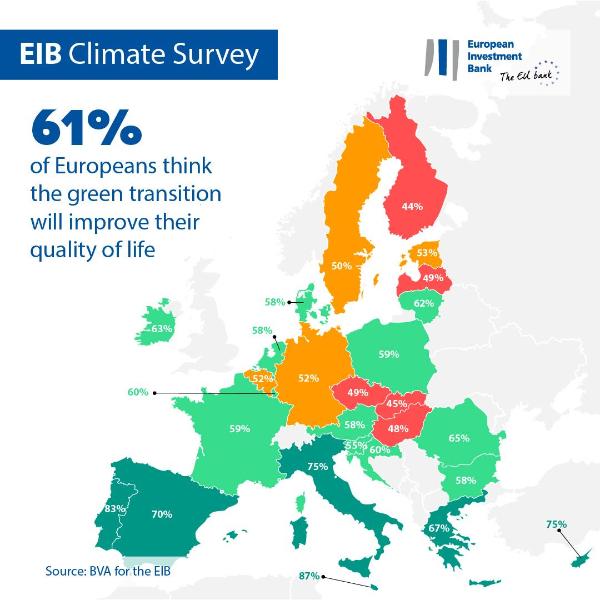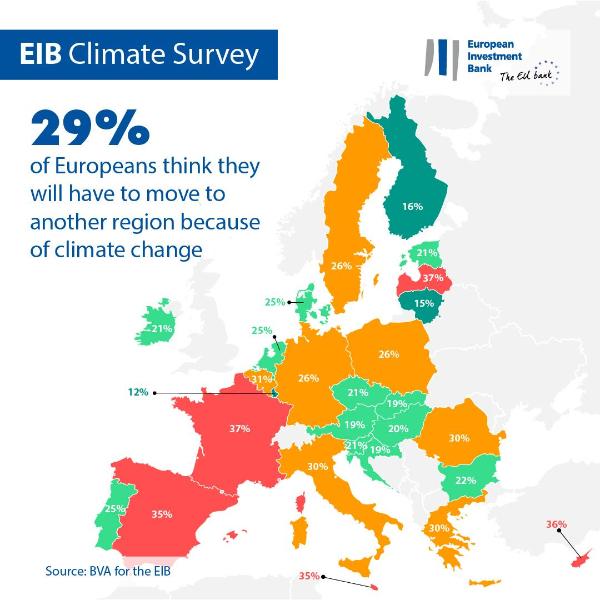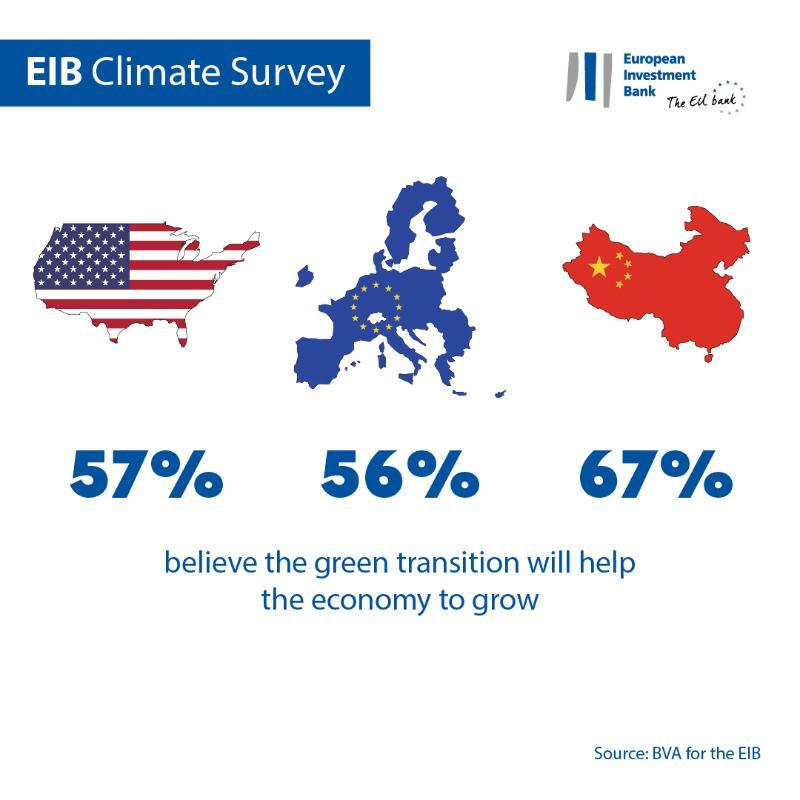Outcome on growth, the job market and quality of life
Are policies to tackle climate change good news for the economy? Hungarians are split on whether the green transition will be a source of economic growth. Only 49% believe it will be the case, compared to 56% of EU citizens as a whole.

Only 48% believe that their quality of life will improve, with greater convenience in their everyday lives and a positive impact on the quality of their food and their health, while a small majority (52%) expect their life to worsen with the implementation of green measures. Hungarians are also split on whether policies that address the climate emergency will benefit the job market: a small majority (52%) actually believe these will have a net negative impact on employment levels within the country, eliminating more jobs than they create.

In addition, two-thirds (61%) anticipate that their purchasing power will decrease with the green transition.
Migration to other regions and changing jobs
According to Hungarian respondents, the challenges related to climate change are here to stay. While one-third (30%) of them believe that the climate emergency will be under control by 2050, 62% feel that it will still be a serious issue by mid-century.
Hungarian respondents say they see climate change threatening their place of residence. When asked about the longer-term impact of the climate crisis, one-fifth of Hungarians (20%) expect to have to move to another region or country because of climate change. This concern is much stronger among people in their twenties, with more than one-third of people aged 20-29 (35%) saying they are worried about the possibility of needing to move due to climate issues. Hungarians, especially young people, are also concerned about the sustainability of their jobs: one-third of respondents aged 20-29 (35%) fear they could lose their job because it will become incompatible with the fight against climate change (15 points above the national average of 20%).

A global comparison: Differences between EU, British, American and Chinese respondents
Overall, Europeans are divided on whether the green transition will be a source of economic growth. More than half of respondents (56%) believe it will be the case, in line with the perception of Americans and British people (57%), while Chinese people are more optimistic (67%). However, the majority of Europeans (61%) are confident that their quality of life will improve, with a positive impact on the quality of their food and their health. Europeans are less pessimistic compared to Chinese people (77%), Americans (65%) and British people (63%).

EIB Vice-President Teresa Czerwińska said:
“Hungarians are very split over the potential outcome of the green transition in terms of quality of life, but do not expect climate policies to boost the job market. Part of the younger generation is also particularly wary of how climate change may force them to move in the future and anticipates having to change jobs with the green transition. As the EU climate bank, it is our responsibility to listen to these concerns and work with policymakers and industry partners to address them. In doing so, we can help power the transition to a greener and prosperous future that leaves no one behind.”
Download the Excel spreadsheet with the raw data for all 30 countries surveyed here. Please click here to access an EIB webpage presenting key findings of the EIB Climate Survey IV.
These are some of the results from the latest release of the 2021-2022 Climate Survey conducted in September 2021 and published today by the European Investment Bank (EIB). The EIB is the lending arm of the European Union and the world’s largest multilateral lender for climate action projects.






